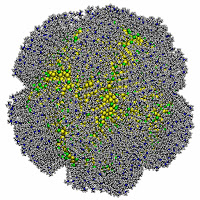If you want to see the evolution of my election videos, check out the previous ones at:
As for the 2019 election video, here's the transcript:
"Thank you for being a member, and being engaged in our Society. I can barely believe that I started on this journey as your District Director six years ago. Our world was a very different place then, but one thing remains constant. And that is the need for the ACS to advance chemical science and technology in the service of our society, our members and you. I have been privileged to represent your voice on the Board. As a researcher, educator and innovator, I have also brought new perspectives to the Board representing the needs of our diverse mid-career members using our products and services.
I have focused on three of ACS’s core values: The value proposition of ACS membership, science advocacy, and education of the chemical workforce. My efforts in these areas are visible through committee service roles, oral presentations, written articles, and frequent communications with your Council representatives.
The power of the ACS lies in part in a single fact: 150,000 members. Some of us are no longer practicing chemistry in the sense of what we learned directly in school. Yet we continue to be “chemists” —that is, ACS members— because we retain a logic and approach to solving problems that is rooted in our discipline.
Our size helps us in our science advocacy in Congress promoting the support of basic research and development, and scientific literacy in our nation. But it has not stopped me from promoting
the need for private philanthropy of the high-risk, high-reward projects that are essential for future advances.
Of course, all of our work is for naught if we don’t maintain our educational mission. We must support K-12, Project Seed and ACS Scholars as they help train the next generation of chemists. I have also worked to add additional offerings for our life-long members on subjects ranging from managing diversity through my OXIDE program, to mid-career Academic Leadership Training (ALT) workshops.
Finally, in my role on the Board, I have had the opportunity to visit several local sections, including my very own Georgia —23 years and counting!—, Greater Houston, South Florida, Nashville, Puerto Rico and the hosting sections of our regional meetings. So I'm asking for your ideas to help me reimagine our society. I'm asking for your vote so that I can continue to work with you to advance our ACS.
Please find me on twitter, @EveryWhereChemistry, or e-mail me at r.hernandez@acs.org
Remember… Your vote has power only if you use it... "






